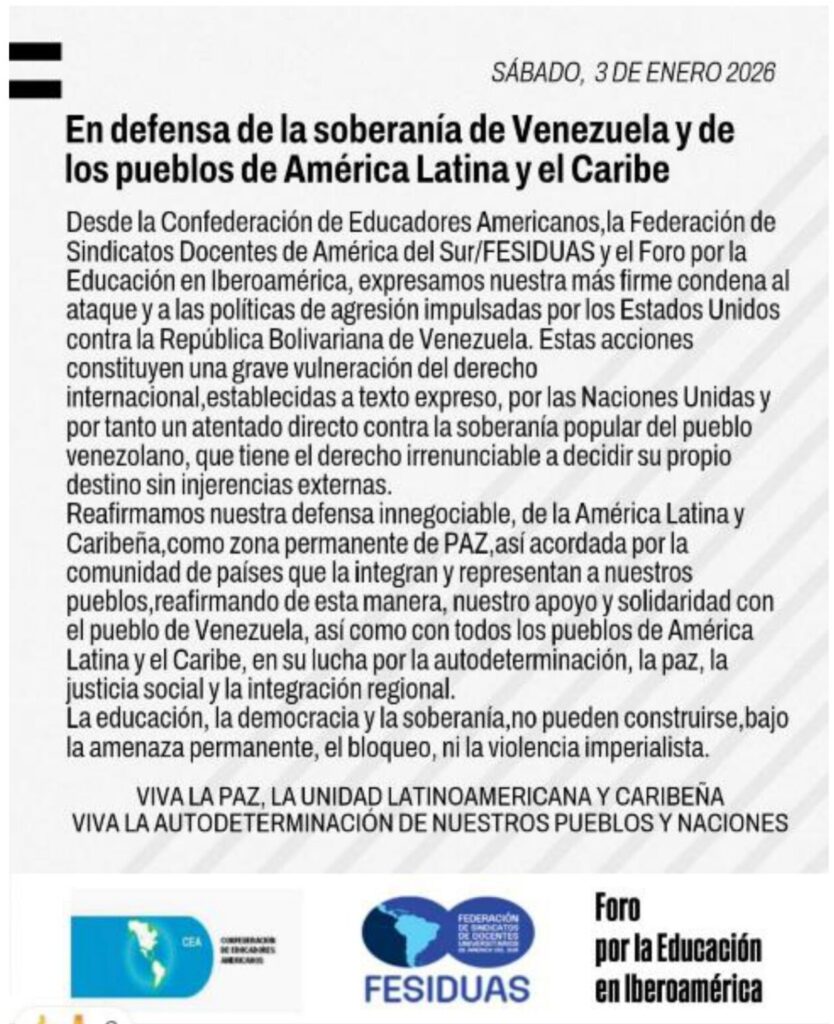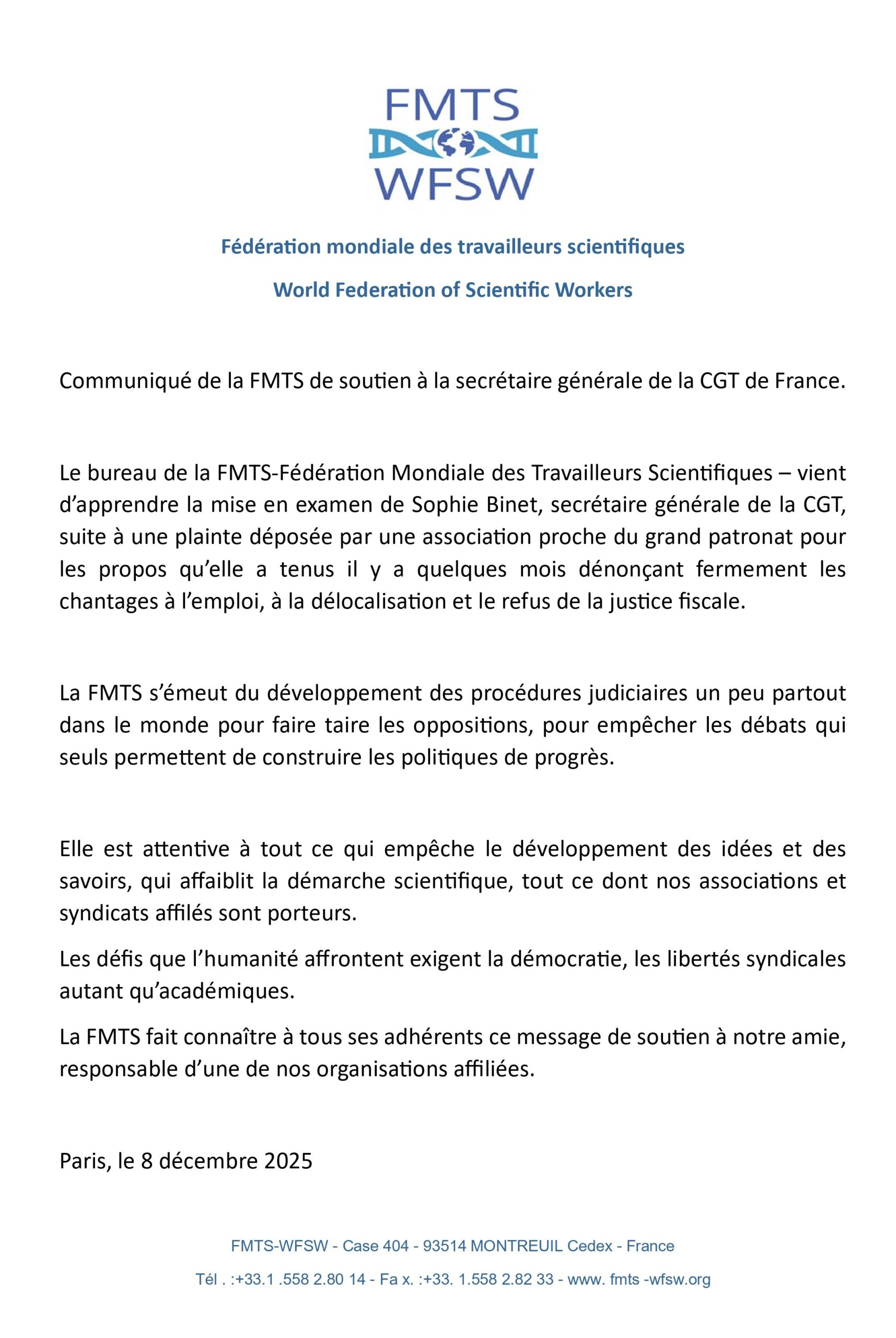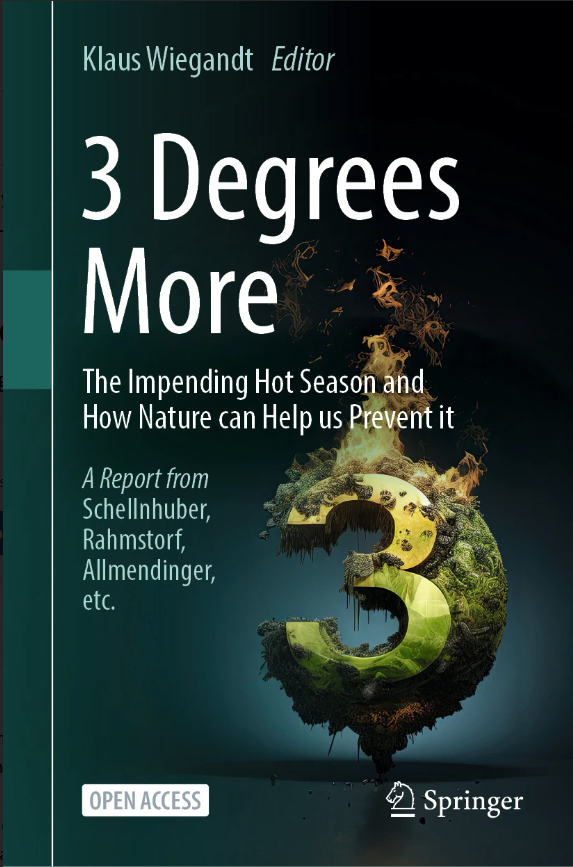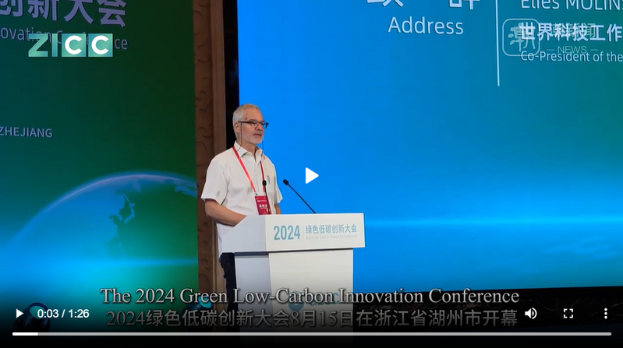Declaration of WFSW on the Energy question
Energy presents major international challenges, in particular in terms of access to fundamental social rights, the environment, and geopolitical tensions and conflicts. Faced with a deep economic, social and ecological crisis linked to types of production and consumption and to the imbalances between the North and the South, we must move toward a sustainable economic model. The increase in the production of energy for greater and greater consumption, by thermal power stations that emit greenhouse gases or by nuclear power plants, is contrary to this objective. We must pursue an ambitious and highly rigourous policy in the use of energy. The WFSW calls for an amplification of the policies of states in the fields of renewable energy, energy efficiency, and economical use of energy.
Several general principles
1) The WFSW condemns the refusal of the great powers to engage authentically in an international process of massive reduction of greenhouse gases, and supports the demand for a binding international policy on this matter. The safety of populations and the conservation of an environment preserving biodiversity all over the planet must be recognized as fundamental rights.
2) The WFSW supports the demand for the right to energy and energy independence of every country. The current methods of energy production mainly aimed at the accumulation of capital and not at the satisfaction of human needs cannot constitute a model.
3) The development of renewable energies must be deployed on a scale sufficient to meet the requirements for massive reduction of greenhouse gas emissions. However, the « green economy », which delivers technological innovations to the markets and orients them toward profit, cannot go in the direction of sustainable development. Major public research and experimental programs on an industrial scale must be carried out with all alternative energy sources and operating conditions in the general interest (wind, solar, hydraulic, tides, geothermal). New approaches must be opened and developed (biomass, clean coal, clean nuclear, etc.). International and technical scientfic cooperation must aim at transparency and exchange of knowledge, in a spirit of planetary solidarity and support to economically weak countries, and must refuse competition between nations and the defense of private interests. The implementation of these programs and the dissemination of knowledge must be under public control, with the participation of scientists, legal experts, trade unions, and associations, in cooperation with international bodies (UNESCO, WHO, ILO) .
4) Government aid must enable the development of energy-saving programs (in transportation, insulation of public and private buildings, alternative and collective heating methods). The electricity market must be publicly regulated, energy consumption prices must be controlled in the interest of populations. The WFSW rejects the principle of free competition in the production and sale of electricity.
5) The control of energy consumption also requires control over the choice of pruduction and organization of work. The social utility of technological innovations and the evolution of working conditions must be examined with the participation of researchers, employees, producers, and users. A « right to intervene » of workers in the methods and objectives of production would make it possible to reduce energy consumption and enhance the value of human work in terms of working conditions, occupational health, solidary social protection based on work, recognition of skills and redistribution of added value.
6) Sustainable development cannot be meaningful without a social, economic, and cultural dimension. It lies in fair recognition of human work in response to the material, cultural, and educational needs of all the peoples of the world while respecting ecosystems and natural resources.
Nuclear energy
The Fukushima catastrophe reopens the question of the safety of nuclear energy production facilities, radioprotection of persons, and information for citizens. The WFSW puts forward the following demands:
– true independence of international and national bodies in charge of nuclear safety and the safety of facilities;
– by states to give priority to safety in view of the current trend toward cost-cutting;
– that governments cannot take decisions alone concerning the nuclear sector, the share of nuclear energy in each country, and in the long-term the decision to keep or abandon nuclear power. Only a process of dialogue between civil society and its elected representatives based on the consultation of all persons working in in the nuclear sector and their trade union organizations will make it possible to take decisions in the general interest and to eliminate the possibility of conflicts of interest;
– complete and regular inspection of existing nuclear facilities in countries with nuclear power plants in order to assess the reliability of the facilities, the risks due to their ageing, risks related to maintenance and operation as well as earthquake or flood risks;
– the assessment of the cost and conditions of waste processing and the dismanteling of nuclear facilities;
– The working conditions and health risks for all employees in the nuclear sector, full-time employees or temporarily sub-contracted employees, must be made transparent. Knowledge of the working conditions, questions of fuel supply and waste processing must be subject to international cooperation in a spirit of planetary solidarity and protection of all peoples.
Nizhny-Novgorod, September 12, 2013




